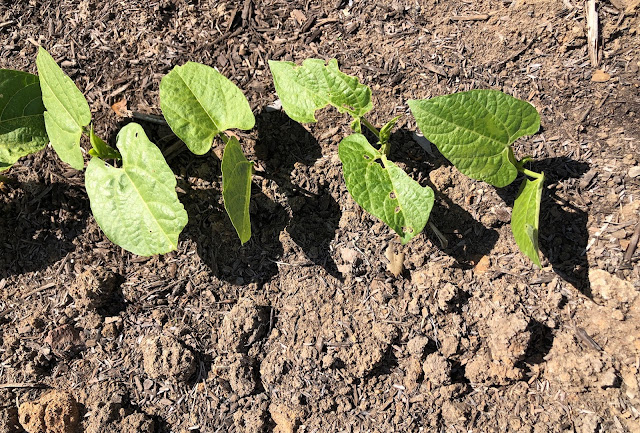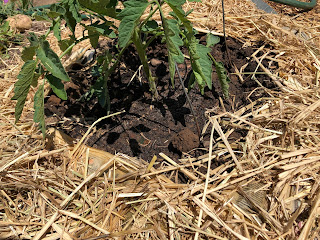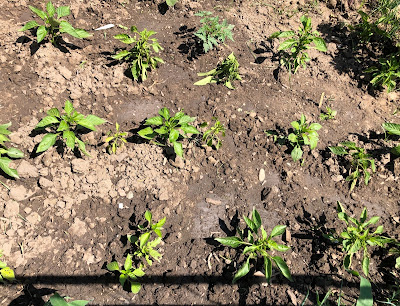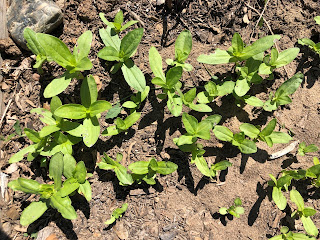

|
|
It's difficult to pull plants you've grown from seed, but for these beans to thrive, they'll have to be thinned soon. (Photos: Kathy Morrison)
|

|
|
A mulch of newspaper and straw keeps the soil around
this tomato plant from drying out too quickly.
|

|
| This garden would benefit from some mulch now, before the weather heats up. |

|
| The zinnias are up! Now they should be thinned. |
Comments
0 comments have been posted.Sacramento Digs Gardening to your inbox.
Sites We Like
Garden Checklist for week of May 12
Get your gardening chores and irrigation done early in the day before temperatures rise.
* Plant, plant, plant! It’s prime planting season in the Sacramento area. Time to set out those tomato transplants along with peppers and eggplants. Pinch off any flowers on new transplants to make them concentrate on establishing roots instead of setting premature fruit.
* Direct-seed melons, cucumbers, summer squash, corn, radishes, pumpkins and annual herbs such as basil.
* Harvest cabbage, lettuce, peas and green onions. This heat will cause leafy greens and onions to flower; pick them before they bolt.
* In the flower garden, direct-seed sunflowers, cosmos, salvia, zinnias, marigolds, celosia and asters.
* Plant dahlia tubers. Other perennials to set out include verbena, coreopsis, coneflower and astilbe.
* Transplant petunias, marigolds and perennial flowers such as astilbe, columbine, coneflowers, coreopsis, dahlias, rudbeckia and verbena.
* Keep an eye out for slugs, snails, earwigs and aphids that want to dine on tender new growth.
* Feed summer bloomers with a balanced fertilizer.
* For continued bloom, cut off spent flowers on roses as well as other flowering plants.
* Got fruit trees? If you haven't already done so, thin orchard fruit such as apples, peaches, pears, pluots and plums before they grow too heavy, breaking branches or even splitting the tree. Leave the largest fruit on the branch, culling the smaller ones, and allow for 5 to 6 inches (or a hand's worth) between each fruit.
* Thin grape bunches, again leaving about 6 inches between them. For the remaining bunches, prune off the "tail" end, about the bottom third of the bunch, so that the plant's energy is concentrated in the fruit closest to the branch.
* As spring-flowering shrubs finish blooming, give them a little pruning to shape them, removing old and dead wood. Lightly trim azaleas, fuchsias and marguerites for bushier plants.
* Add mulch to the garden to help keep that precious water from evaporating. Mulch also cuts down on weeds. But don’t let it mound around the stems or trunks of trees or shrubs. Leave about a 6-inch to 1-foot circle to avoid crown rot or other problems.